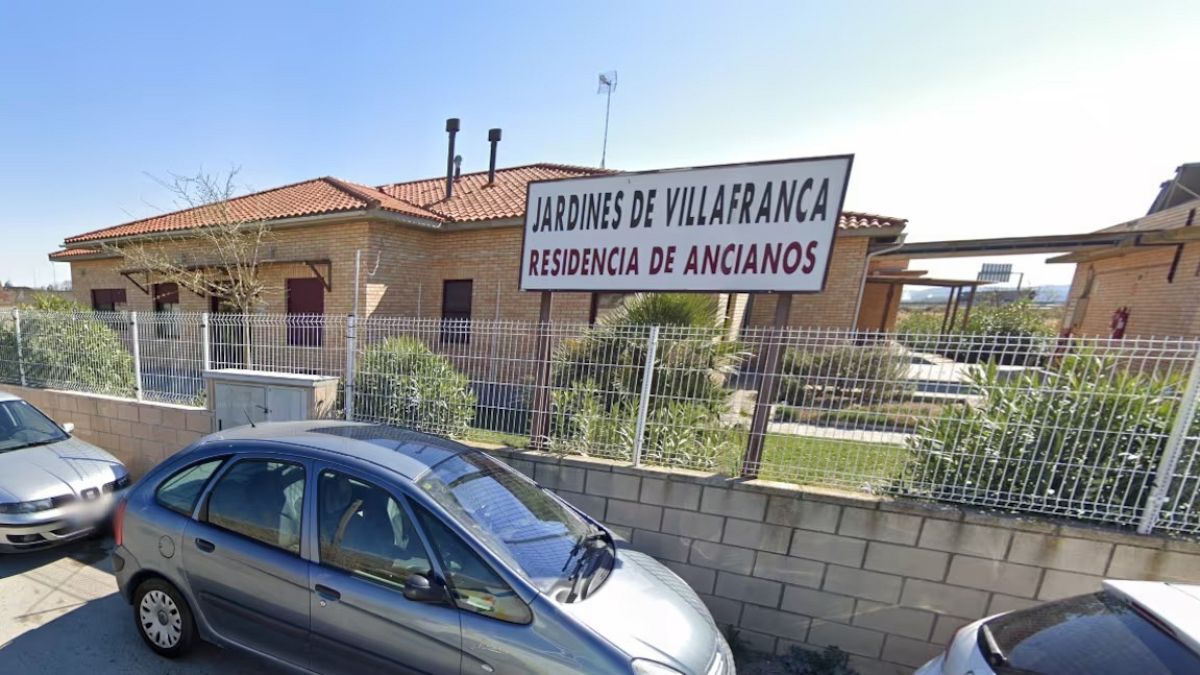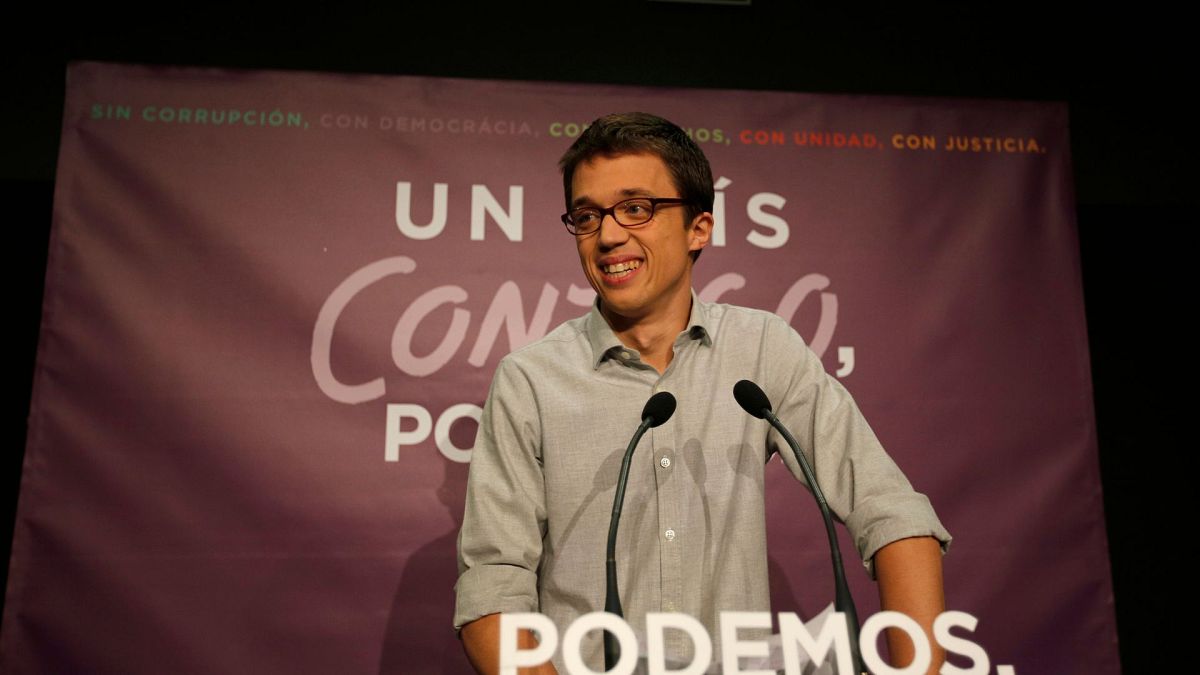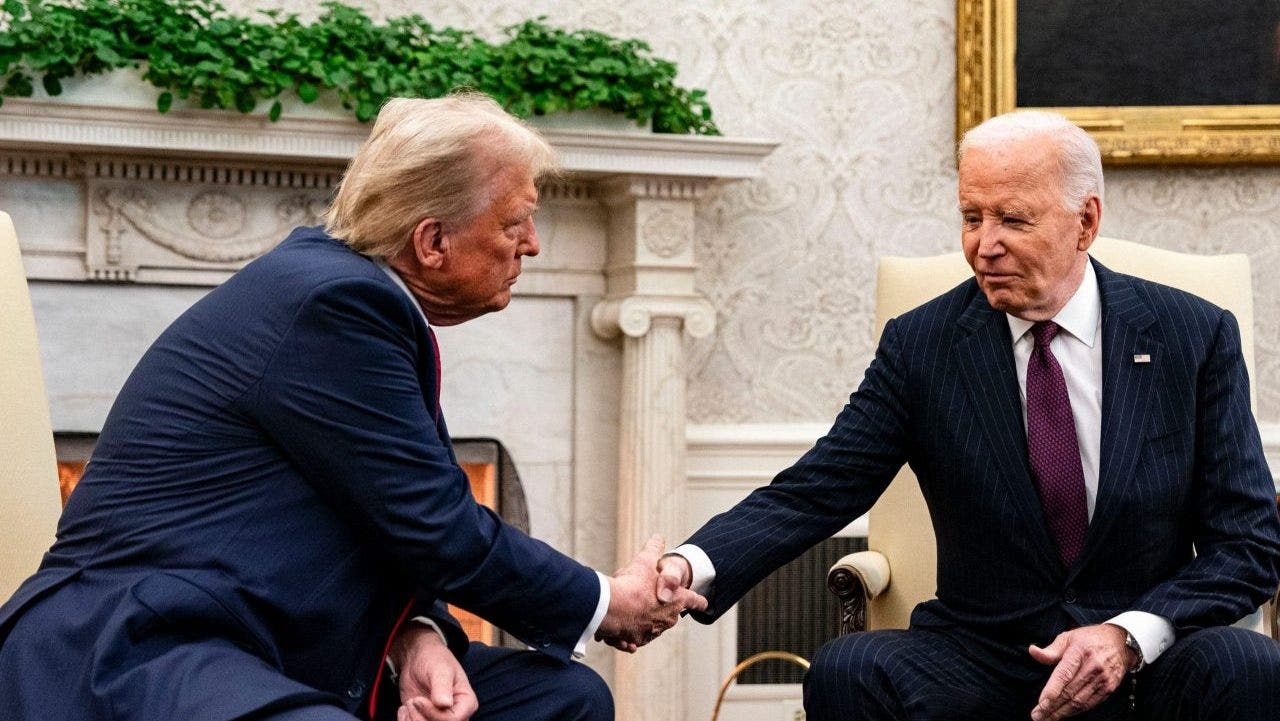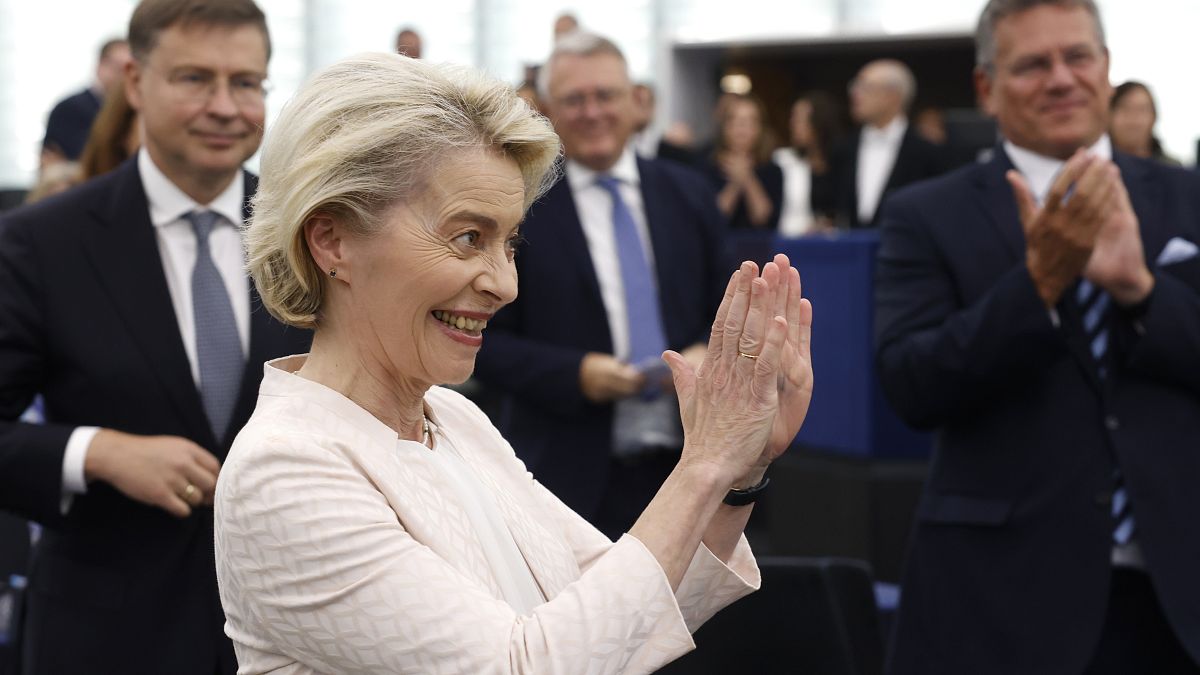World
Alberto Núñez Feijóo is poised to become Spanish PM. Who is he?
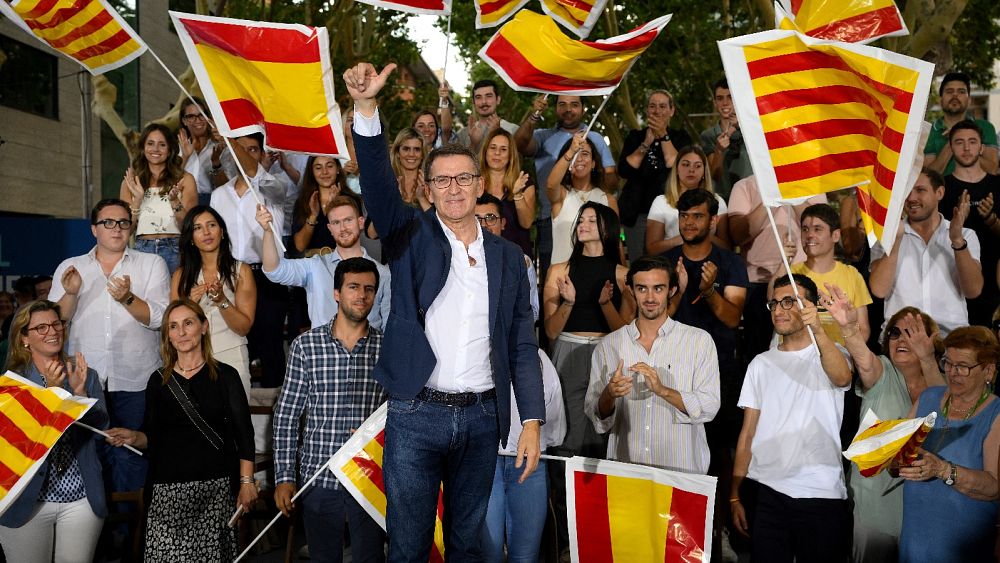
As Alberto Núñez Feijóo took to the stage last Thursday to something akin to a rock star welcome, behind him was a campaign sign which read: This is the moment.
Many in the large crowd in Castelldefels, a wealthy seaside town near Barcelona hoped he may be Spain’s next prime minister.
With less than two weeks until a snap election on July 23, it looks that way.
A succession of polls predict that Feijóo, the PP leader, will win more votes than the ruling Socialist Party but the PP will fall short of winning a majority and may have to rely on the far-right Vox party.
If Feijóo moves into the Moncloa Palace, the Spanish prime minister’s official residence on the outskirts of Madrid, what will this mean for Spain – and Europe?
Throughout this whirlwind summer election, he insisted he can govern alone without Vox but this might require the Socialists and the far-left Sumar party to abstain – something they have refused to do so far.
Feijóo styles himself as a “dull technocrat” in contrast to the Socialist prime minister Pedro Sánchez, who is nicknamed ‘El Guapo’ – The Handsome One – for his film star good looks.
The two men came face to face in a chaotic television debate on Monday night which observers believe Feijóo won – or rather Sánchez lost.
The 61-year-old conservative leader has pledged strong support for the European Union, backing for Ukraine and promoting links between Europe and Latin America.
A victory for the PP would mean a right-wing government would take over Spain’s six-month presidency of the Council of the EU which the Socialists started on July 1.
Feijóo’s party has agreed a series of deals to govern with Vox in a series of regional governments since local elections in May and Sanchez tried to suggest the same could happen on a national level.
A poll for Ipsos for La Vanguardia newspaper found 60% of Spaniards were worried about the prospect of a PP-Vox coalition.
From regional to national government?
In his election manifesto, Feijóo said the PP backed the policy of ‘strategic autonomy’ for Europe which aims to give the continent independence in sectors like defence and technology from the United States and China.
Spain would also support an “efficient, humanitarian and secure” common EU policy to tackle the migration crisis.
He has lined up former ministers and ambassadors to help if he suddenly takes over the EU presidency.
These include José María García Margallo, a former foreign minister and Íñigo Méndez de Vigo, the government spokesman in the last conservative administration.
Feijóo insists his government would keep the border open between Gibraltar and Spain as torturous negotiations between the post-Brexit status of the Rock foundered because of the election.
Until now, Feijóo’s only experience has been running the regional government in Galicia, a conservative rural region in northwestern Spain.
If he becomes prime minister, he will be plunged immediately into international politics, but he insists he is prepared.
“Don’t expect any song-and-dance or last-minute script changes from this candidate but rather certainties, moderation and stability,” he told a recent Madrid meeting.
But Feijóo will lack one essential skill: English.
While Sánchez likes to show off his English and French when talking to heads of state, Feijóo will depend on translators.
Caught off his guard when Sánchez called a snap summer election on May 29, he was about to start English classes that week.
“I literally had the English teacher from last Monday but then they went and called the election,” he said in an interview to Spanish television last month.
“But I can assure you that in international summits, which are usually done with translators, the important thing is they understand what I am trying to say.”
On the domestic front, Feijóo said in an interview with the Financial Times he would overhaul a €3 billion windfall tax which has provoked the ire of banks and energy companies but stopped short of saying he would scrap it entirely.
In classic conservative fashion, Feijóo also promised to lower income tax for those earning less than €40,000 per year – which is the majority of Spaniards.
Feijoo’s moderate style
From true-blue conservative stock, Feijóo did not have a privileged background.
The son of a maintenance worker and a housewife from a hamlet in his native Galicia, Feijóo was sent away to a boarding school on his 10th birthday.
Originally, he wanted to become a judge but this ambition was stifled when his father lost his job so he opted for the Galician civil service. He shot through the ranks and by 35, he was leading Spain’s national health service.
Despite his age, six years ago he fathered a son, also called Alberto, with his partner Eva Cardenas, a company director. Almost like the song ‘Love is in the air’, the pair met on board a flight from Madrid to Galicia.
Feijóo won four straight elections in Galicia with a moderate style which won votes from the far-right to Galician nationalists.
This sympathy with Spain’s other ‘nations’ – Catalonia, Galicia and the Basque Country – might give him a slightly warmer reception from Catalan separatists with long memories of how a previous PP government sent hundreds of police to quell an independence referendum in 2017.
Feijóo kicked off the election campaign in Castelldefels, a town that is home to footballers from FC Barcelona and wealthy business people.
Ironically, next to the rally was the House of the Republic, which pays homage to those on the Republican side who lost their lives or who were forced into exile in the Spanish Civil War.
Feijóo has promised to repeal the Democratic Memory Law, which was brought in 2022 by the left-wing coalition government to deal with the legacy of the dictatorship of General Francisco Franco, who ruled Spain for nearly 40 years. The PP leader insists Spain has moved on from this dark chapter of the country’s past.
Stifling humidity did nothing to quieten the adulation of supporters who interrupt Feijóo with cries of ‘President!’
Once again, he used the opportunity to appeal to voters to come out to support the PP so he could form a “government without intermediaries” – a clear reference to Vox.
Vanesa Vazquez, 41, came to the rally to see the man she hoped would be the next prime minister.
“There is a lot of excitement here. We hope it is Feijóo who wins the election, so we can get rid of Sánchez,” she said.
Watching from the sides was Lola Alvarez, 62, a left-winger, who will not be voting for Feijóo.
“He will not be good for Spain. We have a good economy right now. We don’t need change,” she said.

World
Namibia elections 2024: Will ruling SWAPO finally be dethroned?

Amid a wave of historic election upsets in Southern Africa, Namibians will go to the polls this week to vote in presidential and parliamentary elections set to be the most competitive and tightly contested yet.
The vote on Wednesday comes after independence-era liberation parties that long held onto power were kicked out in Botswana and crippled in South Africa earlier this year. In Mozambique, the governing Frelimo party’s recent win has led to ongoing deadly protests amid allegations of electoral manipulation.
A newcomer party is set to further loosen the grip of the governing SWAPO (South West Africa People’s Organisation) Party of Namibia. The party has governed the country since independence from apartheid South Africa in 1990.
Increasing dissatisfaction among the youth could mean that the party risks losing the presidency and parliamentary majority for the first time. Its vote share has declined rapidly over the last two elections.
However, analysts say that although SWAPO faces the same issues as its counterparts in neighbouring countries, the Namibian opposition lacks coordination.
“Opposition parties are not well organised here like in South Africa or Botswana. That might see SWAPO get off the hook and get on track to win parliament,” Graham Hopwood, the executive director of the Windhoek-based Institute for Public Policy Research (IPPR), told Al Jazeera.
Namibia is vast but with just 3 million people, making it one of the most-sparsely populated countries in Africa. Its harsh, arid environment is largely unsuitable for living. The country is home to the Kalahari and Namib deserts. Its capital city is Windhoek.
The November 27 vote will be the seventh since independence. Some 1.45 million people are registered to vote.
Here’s all you need to know about who is running and what’s at stake:
How will people vote?
- Some 1.45 million eligible voters will pick the president and members of the National Assembly.
- Twenty-one parties are competing for 96 parliament seats. There are 15 presidential candidates.
- Presidential candidates are required to win more than 50 percent of the vote to secure the top job.
- If no candidate wins the majority vote, the two highest-polling candidates will face off in a second election round. This has never happened in Namibia.
Who is running for president?
Vice President Netumbo Nandi-Ndaitwah (72): She is the governing SWAPO Party’s first female presidential candidate and the favourite to win the election, although analysts say she faces strong competition. If she wins, she will become Namibia’s first female president.
Nandi-Ndaitwah was among a host of SWAPO members actively involved in the country’s fight for independence in exile. She returned from the United Kingdom to join parliament in 1990 and went on to serve as minister with several portfolios over the years. The late President Hage Geingob, who died of cancer in February, picked Nandi-Ndaitwah as deputy prime minister and had selected her as his successor before his passing.
Despite SWAPO’s incumbency, the politician faces several hurdles, analysts say. There is popular dissatisfaction with the party in a highly unequal country where housing and employment remain out of grasp for many, and where corruption is rife. Young people, in particular, don’t believe in SWAPO’s continued power.
While Geingob received more than 80 percent of the votes in 2014, his 2019 share dropped to 56 percent. SWAPO similarly lost a two-thirds majority in parliament in 2019. It was the first time that happened since 1994.
“The allure of the liberation struggle is fading for SWAPO, because many young people can’t remember it, or were born afterwards,” Hopwood of the IPPR said. Also untested is the appetite among Namibia’s male voters for a woman president, the analyst added.
Namibia is one of Africa’s most gender-equal countries. Nearly half of the seats in parliament are held by women, and Prime Minister Saara Kuugongelwa-Amadhila is female. However, the prime minister is appointed, while this would be the first time voters would be electing a woman leader.
Still, Hopwood added, Nandi-Ndaitwah is popularly seen as not corrupt, unlike some of her SWAPO counterparts.
In a special vote session on November 12, held for some 16,300 people, including those like security officials who cannot cast ballots on November 27, the politician led the other candidates with 60 percent of the vote.

Panduleni Itula (67): Itula was once a SWAPO youth leader before his exile to the UK in the 1970s. There, he studied and practised as a dentist for more than 30 years, and returned to Namibia in 2013.
In the 2019 elections, Itula shook up the political landscape when he ran as an independent candidate against late President Geingob, much to the anger of the SWAPO leadership. Itula managed to clinch a significant 29 percent of the vote. It was not enough to block Geingob’s second-term plans, but it was the best any challenger had done against the governing party.
Itula criticises the SWAPO government for what he describes as endemic corruption and general inefficiency in Namibia. He was expelled from SWAPO in 2020.
Now, he is back under his Independent Patriots for Change (IPC) party. He remains popular, especially among Namibia’s young. Itula has promised economic prosperity for the youth, and wants to reduce corporate taxes so more foreign companies can move to the country.
If young people turn out at the polls, Itula could threaten SWAPO’s chances, as the politician appeals to the youth, analyst Hopwood said. The Namibian Electoral Commission says 91 percent of eligible voters have registered to vote, with many new voters being under 30.
“SWAPO faces a serious challenge from Dr Itula and they’ll be worried ahead of the vote,” Hopwood said.
McHenry Venaani (47): He is the leader of the Popular Democratic Movement (PDM), Namibia’s largest opposition party. Although the party holds 16 out of 96 seats in parliament, the most after SWAPO, Venaani only managed to clinch 5 percent of the votes in 2019 when he ran for president.
Bernadus Swartbooi (47): He leads the Landless People’s Movement (LPM) which campaigns for land redistribution to Namibians whose land was dispossessed by German settlers in the 1900s. The LPM has four seats in parliament. In 2019, Swartbooi, formerly of SWAPO, won 3 percent of the vote.
Job Amupanda (37): The university professor leads the Affirmative Repositioning (AR) movement which started off as an advocacy group. The entity focuses on land reform programmes as well, and advocates for more aggressive approaches, such as forceful takeovers of foreign-owned land.
Many absentee landowners are of German and South African descent, and live permanently in South Africa, Germany or other European countries.

What are the key issues?
Economy and inequality: Although a middle-income country rich in uranium and diamonds, Namibia’s wealth is unevenly distributed, dating back to a legacy of apartheid and violent colonialism. It is the second most unequal country in the world after South Africa.
Poverty levels are high, with more than 64 percent of the population living below $5.50 daily according to the World Bank. The majority Black Namibian population and minority ethnic groups are especially at a disadvantage.
A punishing drought, meanwhile, is ravaging the country’s food production. It is the worst in a century, according to the World Food Programme. Some 48 percent of the population need urgent food assistance, and 17 percent of children under five are stunted.
Unemployment: About 43 percent of Namibia’s youth are unemployed, one of the highest rates on the continent, according to official numbers last released in 2016. Nandi-Ndaitwah of SWAPO has pledged to spend about 85 billion Namibian dollars ($4.7bn) over the next five years to create more than 500,000 jobs, but there are questions about how the funds will be sourced.
The IPC’s Itula, meanwhile, wants to liberalise the economy and allow more foreign companies in.

Corruption: Successive SWAPO governments are accused of deep-rooted corruption. The fish-rot scandal that broke in 2019 still causes a stench. Fishing is lucrative in Namibia and accounts for 20 percent of export revenue.
Several top government officials, including late President Geingob, were implicated after WikiLeaks released files revealing how officials ran schemes to control valuable fishing quotas before diverting them to an Iceland company for kickbacks. Six people, including two ministers from SWAPO, were jailed.
Although Vice President Nandi-Nanditwah is not implicated, SWAPO has come under fire for allowing some party members who are still being investigated to campaign for her ahead of the election, like SWAPO’s Youth League Secretary Ephraim Nekongo.
Housing crisis and land reform: The inequality spills over into land and property ownership. Namibia urgently needs more than half a million homes to solve a severe housing shortage, but most of the population would not qualify for a mortgage because of poverty and high property prices, according to the World Economic Forum. Close to half a million people live in shacks and informal housing units in Windhoek.
Leftist parties like the Affirmative Repositioning movement have promised to construct 300,000 houses over five years. Meanwhile, Itula’s IPC says it will declare a state of emergency on housing.
A land reform programme, which aimed to buy back land from mostly white farm owners to resettle poorer Namibians, has not run smoothly. Farmers are reluctant to sell land, or sell it at inflated prices, making it difficult for the government to acquire adequate land for resettlement purposes.
Parties like the AR have taken what analysts call a “radical position”, promising to forcibly reclaim some 1.4 million hectares (3,500,000) acres of land from foreigners and absentee landlords. The PDM has also promised to provide free land plots to the people.
What else?
Polls on Wednesday will close at 9pm CAT (19:00 GMT).
Results could be announced on the following day, November 28.
However, with the electoral commission reverting to ballot papers, the results might take a few more days to emerge. Numerous vote tallying problems in the 2019 elections marred the use of electronic card readers and prompted the switch.
Analysts say Wednesday’s vote is likely to be peaceful as elections have been in the past. However, some experts worry that delayed results could result in allegations of fraud or even pockets of violence, as was seen in Mozambique.
World
Suits Star Patrick J. Adams Reveals He Quit the Show Because He Was ‘Drinking Too Much’ and ‘Miserable’

ad
World
Biden announces cease-fire plan between Israel and Hezbollah ending 14 months of fighting
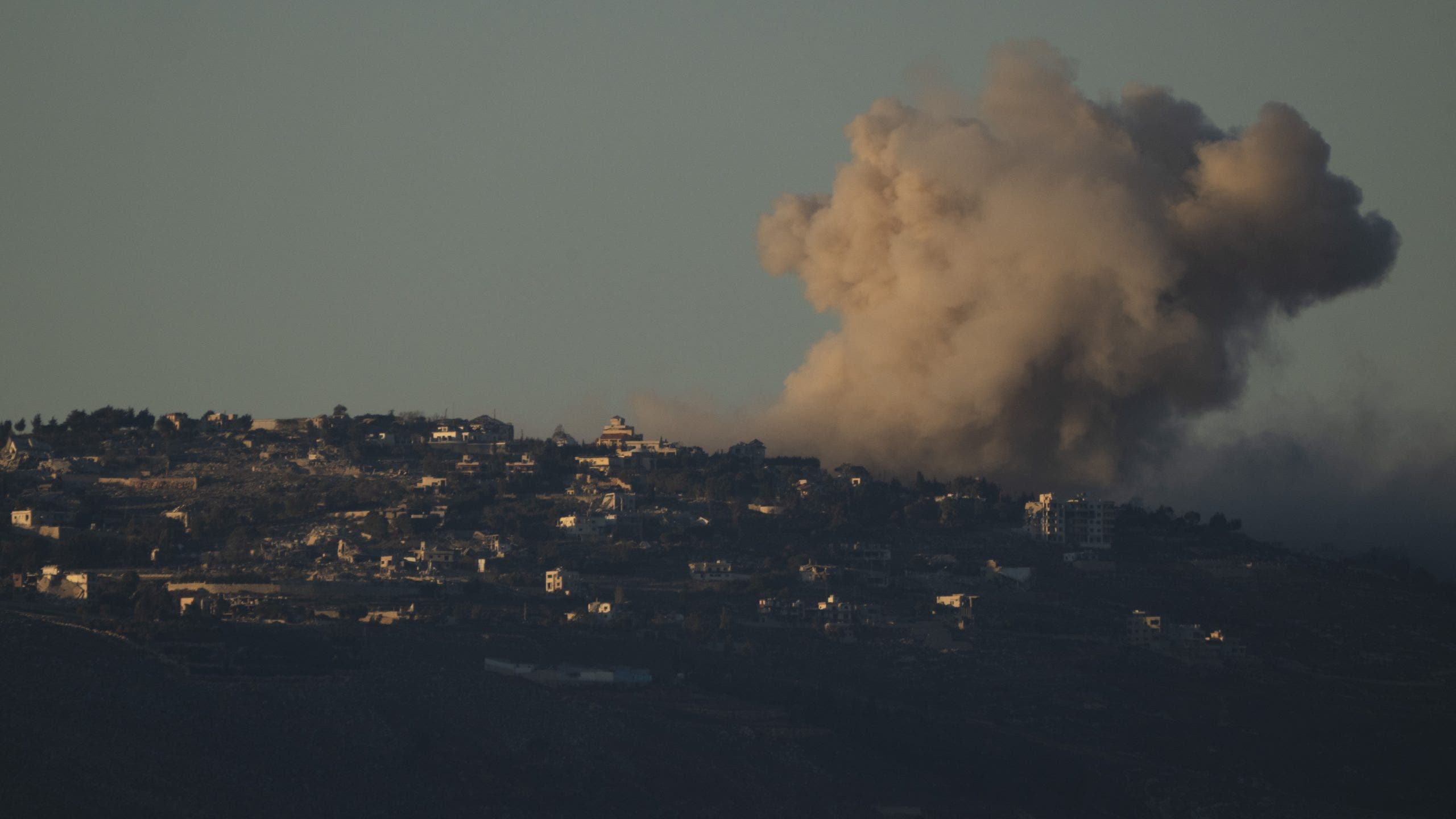
Israel has agreed to a cease-fire agreement with Hezbollah terrorists that would end nearly 14 months of fighting, President Biden announced Tuesday.
Biden, speaking from the White House Rose Garden, said that Israel and Lebanon agreed to the deal. Israel retains the right to self-defense should Hezbollah break the pact, Biden said.
“Let’s be clear. Israel did not launch this war. The Lebanese people did not seek that war either. Nor did the United States,” Biden said. “Security for the people of Israel and Lebanon cannot be achieved only on the battlefield. And that’s why I directed my team to work with the governments of Israel and Lebanon, to forge a cease-fire, to bring a conflict between Israel and Hezbollah to a close.”
“This is designed to be a permanent cessation of hostilities,” Biden added. “What is left of Hezbollah and other terrorist organizations will not be allowed. Well, I emphasize, will not be allowed to threaten the security of Israel again.”
THUNE THREATENS INTERNATIONAL CRIMINAL COURT WITH SANCTIONS IF IT DOESN’T DROP NETANYAHU WARRANT FOR ARREST
Israeli Prime Minister Benjamin Netanyahu meets with IDF commanders in the Netzarim Corridor in Gaza to discuss Hamas activity. 11/19/2024 (Photo provided by TPS)
In a prepared joint statement with Biden and French President Emmanuel Macron, both leaders said the cease-fire would restore calm and allow residents of both countries to return to their homes on both sides of the Blue Line, the demarcation line between Israel and Lebanon.
Israeli Prime Minister Benjamin Netanyahu spoke with Biden and “thanked him for the US involvement in achieving the ceasefire agreement in Lebanon and for the understanding that Israel maintains freedom of action in enforcing it,” his office said.
Netanyahu’s security Cabinet convened earlier Tuesday, when ministers had been deliberating for more than three hours over the proposed deal. The political-security cabinet approved the United States’ proposal for a ceasefire arrangement in Lebanon, with 10 ministers in favor and one opposed, Netanyahu’s office said.
At a press conference while deliberations were ongoing, Netanyahu laid out three reasons in support of the deal: to focus on the Iranian threat; provide an opportunity to refresh the Israeli forces; and separate Hamas from the northern front.
The conflict in Lebanon began when Hezbollah, which is backed by Iran, initiated strikes into Israel’s north after Hamas attacked Israel on Oct. 7, 2023. Since the back-and-forth began, Israel has killed many of Hezbollah’s leaders, in addition to degrading its infrastructure in Lebanon.
By ending the conflict with Hezbollah, Netanyahu said Hamas would stand alone in the Gaza Strip, clearing the way for Israeli forces to recover the remaining Oct. 7 hostages.
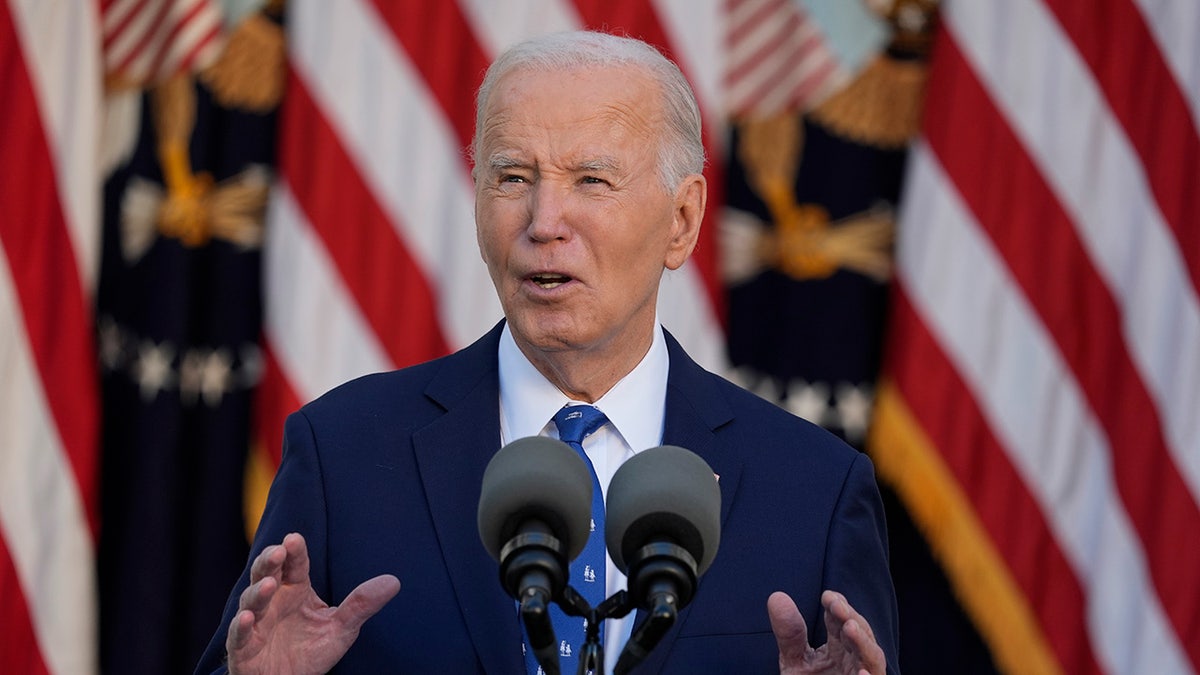
President Joe Biden speaks in the Rose Garden at the White House, Tuesday, Nov. 26, 2024, in Washington. (AP Photo/Manuel Balce Ceneta))
Earlier, Netanyahu said he would present the agreement to the Cabinet for a vote later Tuesday.
“How long it will be will depends on what will happen in Lebanon,” Netanyahu said. “If Hezbollah doesn’t follow the agreement, we’ll attack.”
Under the proposed terms of an initial two-month cease-fire, Hezbollah would have been required to move its forces north of the Litani River – a significant focal point which in some places is 20 miles from the Israeli border – and Israeli forces must withdraw from southern Lebanon as well. The Lebanese armed forces are to deploy to the border region within 60 days, and a five-country committee chaired by the U.S., and including France, would monitor compliance of the terms of the deal, Reuters reported.
Rocket alarms began sounding Tuesday evening across Israel around the time the deal was accepted.
“Israel: We accept your request for a ceasefire. Hezbollah: We raise you a barrage of missiles,” Eylon Levy, a former spokesman for Israel, wrote on X.
Sen. Ted Cruz, R-Texas, backed Israel in a statement, but criticized former President Barack Obama and the Biden administration over its handling of the conflict.
“I am deeply disturbed both by reports that Obama-Biden officials exerted enormous pressure on our Israeli allies to accept this ceasefire and by how those officials are characterizing Israel’s obligations,” Cruz said. “This pressure and these statements are further efforts to undermine Israel and constrain the incoming Trump administration.”
ISRAEL ‘MOVING FORWARD’ ON POSSIBLE HEZBOLLAH CEASE-FIRE, OFFICIAL SAYS
Among the remaining issues was Israel’s demand to reserve the right to take military action should Hezbollah violate its obligations under the emerging deal.
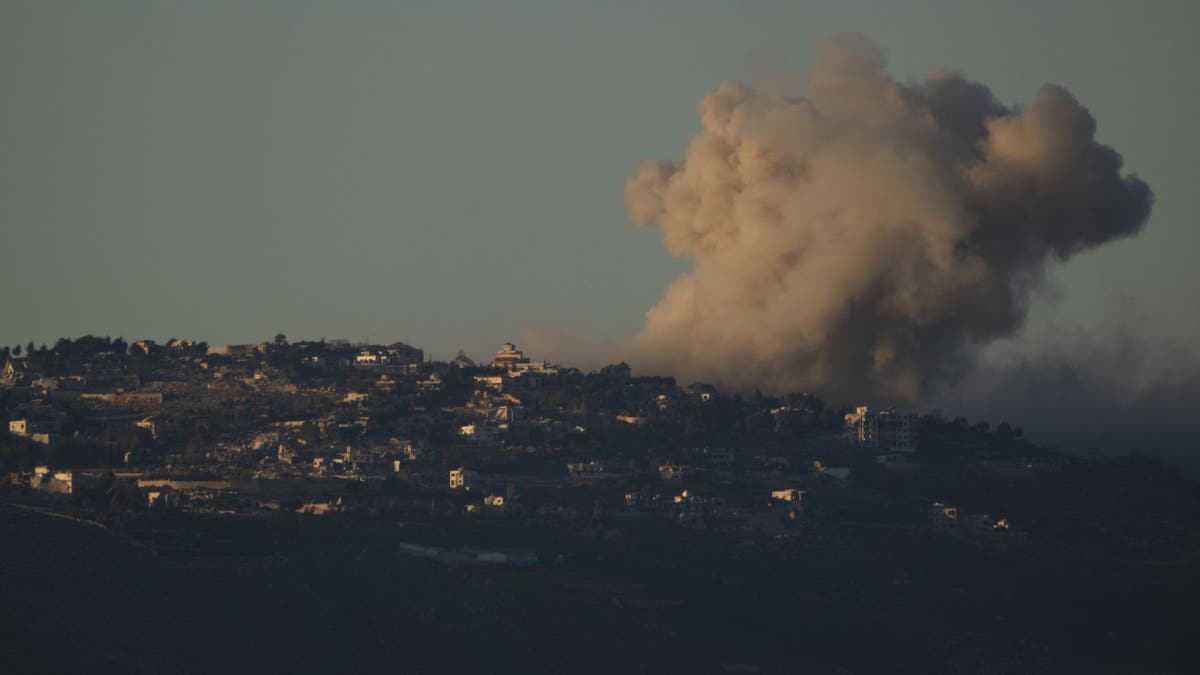
Smoke rises following Israeli bombardment in southern Lebanon as seen from northern Israel on Tuesday, Nov. 26, 2024. (AP Photo/Leo Correa)
“Obama-Biden officials pressured our Israeli allies into accepting the ceasefire by withholding weapons they needed to defend themselves and counter Hezbollah, and by threatening to facilitate a further, broader, binding international arms embargo through the United Nations,” he added. “Obama-Biden officials are already trying to use Israel’s acceptance of this ceasefire to ensure that Hezbollah and other Iranian terrorist groups remain intact across Lebanon, and to limit Israel’s future freedom of action and self-defense.”
Republicans have criticized the Biden administration for constraining Israel while fighting off attacks from terrorist neighbors.
In addition to the cease-fire, a peacekeeping mission by observers from the United Nations Interim Force in Lebanon will also continue, according to the Israeli news agency Tazpit Press Service (TPS-IL).
The Israeli Defense Forces (IDF) said earlier Tuesday that its ground troops have reached parts of Lebanon’s Litani River – considered a longtime Hezbollah stronghold.
In a statement, the IDF said its troops had reached the Wadi Slouqi area in southern Lebanon and “raided Hezbollah strongholds, uncovering and confiscating hundreds of weapons, dismantling dozens of underground facilities, and neutralizing numerous rocket launchers that were prepared for imminent use.”
The IDF said the clashes with Hezbollah took place on the eastern end of the Litani, just a few miles from the border. It is one of the deepest places Israeli forces have reached in a nearly two-month ground operation.
The Israeli military said troops “conducted intelligence-based raids based on terrorist infrastructure concealed in the complex terrain.”
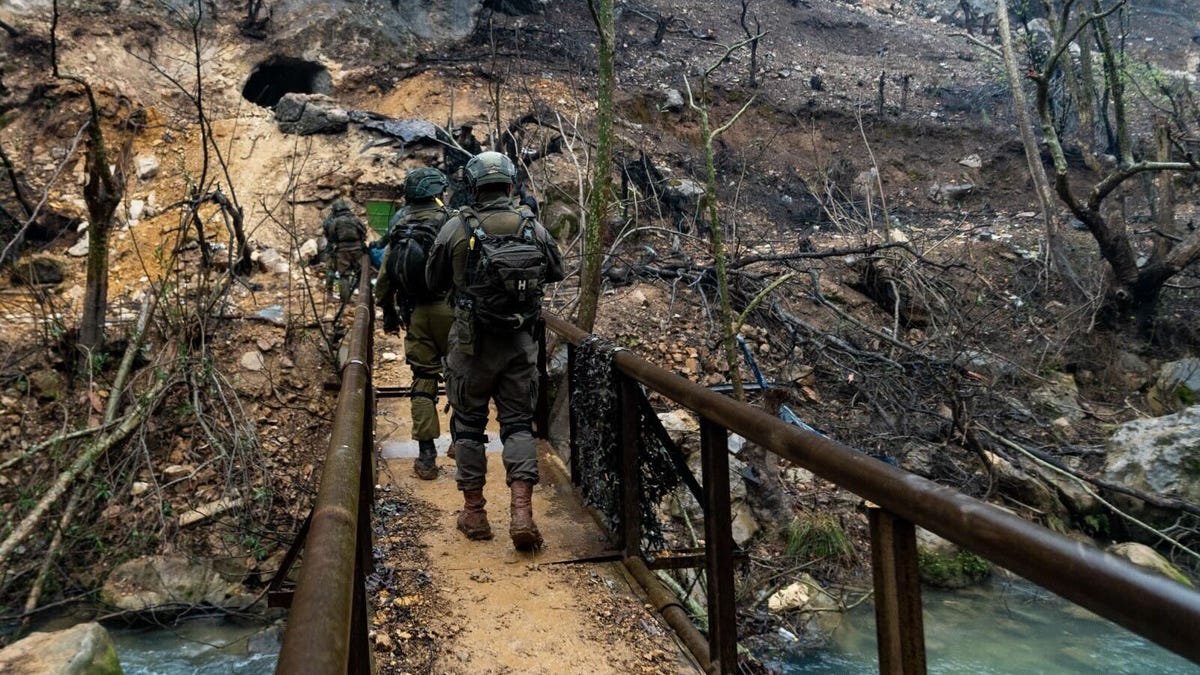
Israeli soldiers at the Litani River in southern Lebanon on Tuesday, Nov. 26, 2024. (IDF Spokesperson/TPS-IL)
TRUMP, CONGRESS LOOKING TO PUT SUFFOCATING SANCTIONS ON ‘KANGAROO’ ICC OVER NETANYAHU ARREST WARRANT
“The soldiers raided several terrorist targets, engaged in close-quarters combat with terrorists, located and destroyed dozens of launchers, thousands of rockets and missiles, and weapons storage facilities hidden in the mountainside,” the IDF said.
Senate Majority Leader Chuck Schumer, D-N.Y., praised the deal, saying it would allow Israelis displaced in the north to return to their homes and ensure Israel’s security against Hezbollah.
“As this agreement shows, when terrorists are beaten back both militarily and through dogged diplomacy, the likelihood of peace increases. Hezbollah said they would never give up as long as there was fighting in Gaza, but today’s ceasefire agreement should show Hamas they are as isolated as ever,” Schumer said in a statement. “Now, Hamas must release all the remaining hostages and come to a negotiated ceasefire. Carrying on their failed strategy will lead only to further suffering and SENSELESS bloodshed in Gaza. Hamas must recognize that there’s no future without a strong and secure state of Israel.”
“The Israel-Hezbollah ceasefire agreement also provides an enforcement mechanism to help ensure Hezbollah remains weakened and allows displaced Lebanese and Israeli civilians to return to their homes,” he added. “I applaud the Biden administration for this agreement and for continuing to work to negotiate a ceasefire and the return of all the hostages in Gaza.”
Hezbollah began attacking Israel on Oct. 8, 2023, a day after Hamas terrorists killed more than 1,200 people and took more than 250 hostages from southern Israel into Gaza, setting off more than a year of fighting. That escalated in September with massive Israeli airstrikes across Lebanon, and an Israeli ground incursion into the country’s south. Hezbollah has fired thousands of rockets into Israeli military bases, cities and towns, including some 250 projectiles on Sunday.
More than 68,000 Israelis have been displaced from their homes along the Lebanese border, TPS-IL reports.
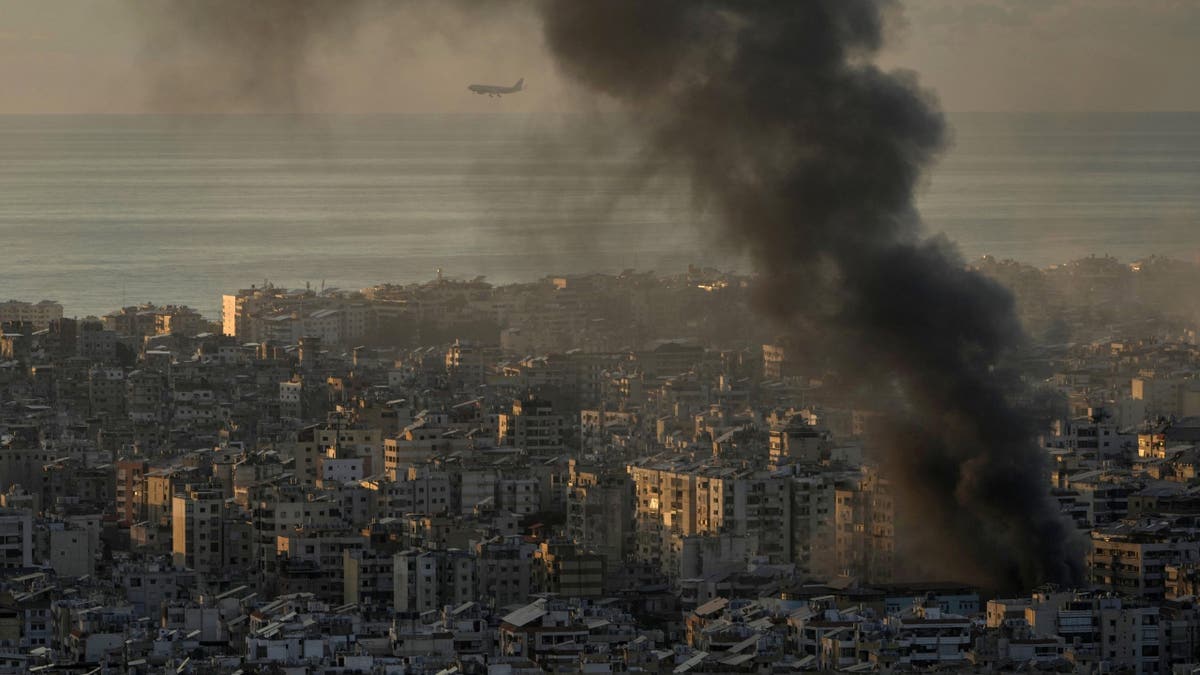
A Middle East Airlines plane flies as smoke rises following an Israeli airstrike on Dahiyeh, in Beirut on Tuesday, Nov. 26, 2024. (AP Photo/Bilal Hussein)
An Israeli strike on Tuesday leveled a residential building in the central Beirut district of Basta — the second time in recent days warplanes have hit the crowded area near the city’s downtown.
The Israeli military also issued warnings for 20 more buildings in Beirut’s Hezbollah-controlled suburbs to evacuate before they too were struck — a move carried out in the final moments before any cease-fire took hold.
Speaking on the sidelines of a Group of Seven meeting in Italy, the European Union’s foreign policy chief, Josep Borrell, said Tuesday there were “no excuses” for Israel to refuse a cease-fire with Hezbollah, warning that without it, “Lebanon will fall apart.”
The Times of Israel reported that Minister of Defense Israel Katz met with the U.N. Special Envoy for Lebanon Jeanine Hennis-Plasschaert on Tuesday, when he said Jerusalem would have “Zero tolerance” for any violation of the truce, warning that “If you don’t do it, we will … and with great force.”
The Associated Press contributed to this report.
-

 Business1 week ago
Business1 week agoColumn: Molly White's message for journalists going freelance — be ready for the pitfalls
-

 Science1 week ago
Science1 week agoTrump nominates Dr. Oz to head Medicare and Medicaid and help take on 'illness industrial complex'
-

 Politics1 week ago
Politics1 week agoTrump taps FCC member Brendan Carr to lead agency: 'Warrior for Free Speech'
-
/cdn.vox-cdn.com/uploads/chorus_asset/file/25739950/247386_Elon_Musk_Open_AI_CVirginia.jpg)
/cdn.vox-cdn.com/uploads/chorus_asset/file/25739950/247386_Elon_Musk_Open_AI_CVirginia.jpg) Technology1 week ago
Technology1 week agoInside Elon Musk’s messy breakup with OpenAI
-

 Lifestyle1 week ago
Lifestyle1 week agoSome in the U.S. farm industry are alarmed by Trump's embrace of RFK Jr. and tariffs
-

 World1 week ago
World1 week agoProtesters in Slovakia rally against Robert Fico’s populist government
-

 Health4 days ago
Health4 days agoHoliday gatherings can lead to stress eating: Try these 5 tips to control it
-

 News1 week ago
News1 week agoThey disagree about a lot, but these singers figure out how to stay in harmony

